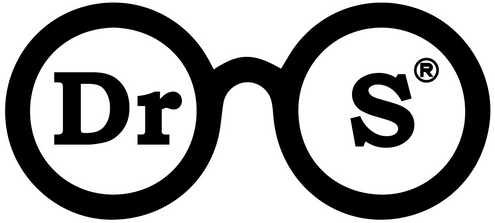 If you’ve never heard of blue blockers before, or you’re on the fence about them, there are some important facts you need to consider. Your health may depend on it.
If you’ve never heard of blue blockers before, or you’re on the fence about them, there are some important facts you need to consider. Your health may depend on it.
Whether you realize it or not, blue light is just about everywhere — and there’s no escaping it. As you work, as you play, and even as you read this, it’s there. It can cause damage so gradually, you might not even comprehend what’s happening until it’s too late. Read on to learn more.
A Quick Introduction To Blue Light
Blue light is known as a High Energy Visible (HEV) wavelength on the light spectrum — the only wavelength of light shorter belongs to ultraviolet light, which isn’t visible to the naked eye. In nature, blue light actually has a lot of benefits. During the day, the blue light in sunlight helps boost our alertness, elevate our moods, and heighten our reaction times.
In our modern age, however, humans are surrounded by sources of blue light long after the sun has gone down. These sources include LED lights, fluorescent lights, and pretty much any screen on our electronic devices: phones, tablets, televisions, you name it. Having exposure to blue light all the time can throw the human body out of whack in all the ways we’ll explore below.
Disrupting Your Circadian Rhythm
It may sound mild, but this is one of blue light’s most dangerous side-effects — one that contributes several of the other conditions on this list. Exposure to blue light suppresses your body’s ability to secrete melatonin, the hormone that helps regulate circadian rhythms and tell your body that it’s time to hit the hay. Less melatonin, and therefore less time asleep, has been linked to increased risk for everything from depression to cardiovascular disease.
Increasing Your Risk For Diabetes And Obesity
A sleep study conducted by Harvard Researchers revealed that when circadian rhythms are shifted, even gradually, several negative health effects arise. In the study, the subjects’ blood sugar levels increased and their leptin levels decreased as their sleep patterns grew more abnormal. Leptin is the hormone that helps you feel full after you’ve eaten a meal, meaning that, if it isn’t present, your appetite won’t feel satisfied and you will most likely end up overeating.
Suddenly, it’s easy to understand why blue light, and blue blockers, are becoming an important part of the discussion about diabetes and obesity. The potential sleep-related effects of blue light may actually be just the start of much broader domino effect.
Increasing Your Risk For Depression
One of the most important parts of mental health treatment is getting yourself back on a proper sleep schedule. Without sleep, you wind up feeling mentally drained, lethargic, and irritable. But, sleep is also crucial for your brain’s ability to process new information and create new memories. So, if you are going through a difficult period of your life, or have depressive tendencies, not getting enough sleep might throw you into a spiral of mental illness.
Using blue blockers to reduce exposure to blue light, and allowing your body to produce the melatonin it needs to get you to sleep, may help your body and mind cope with whatever challenges life has thrown at you.
Digital Eye Strain Syndrome
Have you ever noticed yourself squinting at your computer screen halfway through the work day? This could be one of the many symptoms of Digital Eye Strain Syndrome.
This newly-coined diagnosis describes the itchiness, dryness, and blurriness that our eyes can experience after staring at blue light-emitting screens for too long. It’s also common to experience headaches and neck and back pain.
Remember when carpal tunnel was the biggest computer-related health concern? Digital Eye Strain Syndrome has overtaken it by far. Having proper blue blockers can help keep your eyes happy even after the longest days at the office.
Permanent Eye Damage
One of the biggest concerns related to blue light is the macular degeneration many doctors believe is related to overexposure to it. Macular degeneration occurs when the central portion of the retina (the macula) deteriorates. Since the retina is responsible for recording images and sending them to our brains through the optic nerve, sustaining this kind of damage can lead to permanent vision loss. While blue light isn’t a direct cause of this sort of deterioration, it most likely helps to accelerate it.
How Blue Blockers Can Help
When we imagine the ways technology could hurt us, we usually wind up with a picture of a dystopian future filled with robot overlords. But who would’ve thought they’d be so subtle?
Fortunately, there is a simple way to help protect yourself: by regularly wearing blue blocker glasses.These special lenses can help filter out potentially harmful blue light while allowing you to comfortably go about your daily tasks.
Dr. S Eyewear has a great selection of blue light blocking glasses, which also happen to be the only blue blockers on the market today designed by a licensed optometrist. Dr. S Eyewear’s blue light blocking glasses protect your eyes from up to 99 percent of blue light — most other brands can only block 65 percent.
Our blue blockers can help reduce headaches, dry or irritated eyes, and other side effects related to overexposure to blue light. These blue light blocking glasses can even help prevent your sleep cycle from being disrupted. And as you read above, your sleep cycle can have far-reaching effects.
Call or contact Dr. S Eyewear today to learn more about the effects of blue light and how our blue light blocking glasses can help protect your eyes and your overall health.
